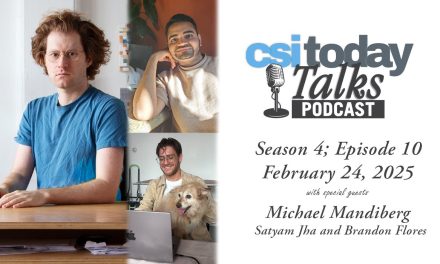With the recent protests around Wall Street drawing attention to the rise of economic inequality in the United States, College of Staten Island Assistant Professor of Sociology Thomas Volscho has recently published an article in the American Sociological Review that aims to explain the rapid 30-year rise of the super-rich.
The study titled, “The Rise of the Super-Rich: Power Resources, Taxes, Financial Markets, and Dynamics of the Top One Percent, 1949 to 2008,” co-authored by Volscho and Nathan J. Kelly of the University of Tennessee, provides useful information for general audiences and policymakers as it uncovers some of the factors leading to the rise of the one percent.
According to the study, the income share of the top one percent grew rapidly after 1980—from ten percent in 1981 to 23.5 percent in 2007, a 135-percent increase. “We found evidence that congressional shifts to the Republican Party, diminishing union membership, lower tax rates, and financial asset bubbles in stock and real estate markets played a strong role in the rise of the one percent,” said Volscho.
Whether the President is Republican or Democrat does not matter, but Republican control of Congress is quite important for increasing the income share going to the richest one percent. While Volscho and Kelly found that Republican strength in Congress was associated with higher levels of inequality, the link between politics and inequality was not merely due to redistribution of income because they examined the pre-tax market distribution of income.
“Democrats are more favorable than Republicans toward social programs that redistribute income but the parties also differ over what the economic rules of the game should be,” Volscho said. “Based on our analysis, Democrats appear to favor an economic system that produces more egalitarian outcomes even before any redistribution occurs.”
One of the biggest factors of this shift is directly tied to private sector union membership as periods of union membership are associated with a diminished income going to the very rich.
“As union membership has decreased, a greater share of income has shifted toward the top one percent,” Volscho said. “With a decrease in union membership, worker’s wage bargaining power diminishes and this can increase firms’ market value and their profitability. A higher market value often translates into higher stock prices and executive compensation, thereby shifting income toward the top.
Another major factor that the authors found was that the stock market bubble (1995-2000) and the housing bubble (1998-2006) helped transfer a substantial amount of income to the very rich because most of the stock and bond wealth is owned by a small minority. The authors conclude that the findings strongly suggest that income inequality is not a natural consequence of the market; it is politically produced.
















